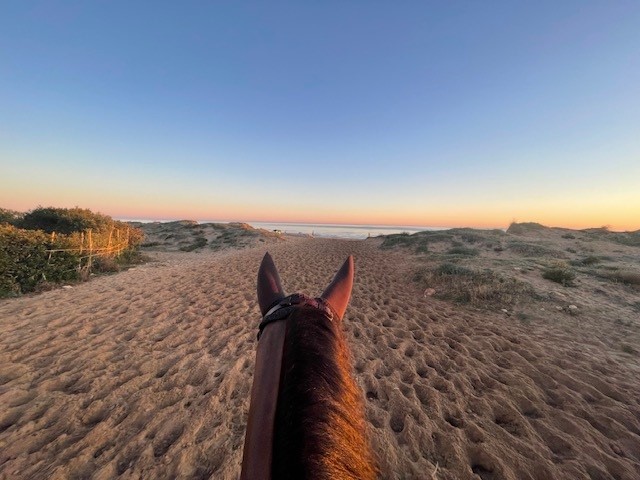Horses that are on SUCCEED come in all shapes, sizes, colors and walks of life. There is no “typical” breed of SUCCEED user, and no particular discipline that defines the SUCCEED horse. Horses from Tennessee Walkers to thoroughbreds to Percherons are on SUCCEED, and horse owners who feed it range from Olympians to weekend warriors.
The variety of horses that are fed SUCCEED daily makes it seem as if every horse needs SUCCEED to be healthy. This is actually a myth. Not all horses require SUCCEED for optimal digestive health.
Here’s how to know if your horse needs to SUCCEED, and how you can create a situation where your horse gets everything he needs without any external help.
Analyze Your Horse’s Digestive Health
Before deciding whether or not your horse needs SUCCEED, ask yourself these questions:
- Does your horse have access to quality turnout at least 18 hours per day?
- Does he get his calories mainly from forage and roughage?
- Can he graze or ingest hay slowly throughout the entire day?
- Do you ride or train him only a few days per week?
- Is he subjected to frequent travel or have a rigorous competition schedule?
- Do you struggle to help him gain or maintain weight?
- Does his coat look dull or ragged?
- Do you rely on processed feed once or twice a day as part of his regular feeding regimen, to give him energy?
If you answered yes to the first four questions and no to the second four questions, congratulations! Your horse’s lifestyle and care are conducive to a healthy digestive system, and he may not need SUCCEED or any other nutritional supplements.
If you answered no to any of the first four questions or yes to any of the second four, your horse would likely benefit from SUCCEED to help him be at his best. That’s because SUCCEED can help mitigate some of the factors that are presenting challenges to your horse, such as limited turnout, a diet high in processed feed or a rigorous travel or training schedule.
Try to Change the Factors you Can Control
Going SUCCEED-free — the hallmark of impeccable digestive health and overall wellness — isn’t impossible. Here are four ways to help you achieve good digestive health for your horse.
Focus on forage
Instead of relying on processed grain rich in simple carbs and starches (such as sweet feed or grain) to provide your horse’s energy, look to fibrous structural carbs. Rebalance your feeding schedule to rely more heavily on hay, beet pulp or chaff instead of grain, combined with regular pasture turnout on quality forage.
Allow extended turnout
Horses should eat constantly for optimal digestive health. Allow your horse to graze freely on an appropriate mix of grasses and roughage for at least 18 hours per day.
This type of slow and steady ingestion represents the horse’s natural digestive process, which increases the likelihood of good digestive health. In many cases, a horse can get all of the vitamins and nutrients he needs from forage alone.
Reduce the amount of time spent training and competing
Horses that are ridden a few times a week at home or on local trails will likely experience fewer digestive issues than horses that are training hard and traveling frequently. This is largely because travel and training disrupts optimal turnout and feeding schedules, and partially because we ask a lot of our horses when they’re professional competitors. The challenges presented by traveling to shows and limited showground turnout can take its toll on the digestive process. Additionally, a horse in hard training may require additional calories beyond those taken in from grazing and forage alone.
Create the optimal diet for your horse
All horses have different nutritional needs — even horses of the same breed, age and gender that compete at the same level. On a very basic level, prioritize roughage fed in small doses at frequent intervals, and be sure your horse has access to plenty of fresh water. For a more in-depth look at varying nutritional needs, check out our series on nutritional needs, and talk to an equine nutrition specialist.
That all horses need SUCCEED to be healthy is a MYTH.
If your horse is on a carefully managed and balanced feeding program ensuring the right blend of nutrients for that horse’s level of activity and life stage, and/or with plenty of turnout, then SUCCEED may not be necessary. But managing the feeding program is a lot of work, a lot of time, and potentially expensive. Turnout on quality pasture is not always practical or even possible. And few of our horses can spend their time idly grazing — most of us keep horses to compete with and to ride on a regular basis. We ask a lot of our horses, so while it’s imperative to do as much as we possibly can to create the scenario above, many horse owners rely on SUCCEED to help do the rest.



